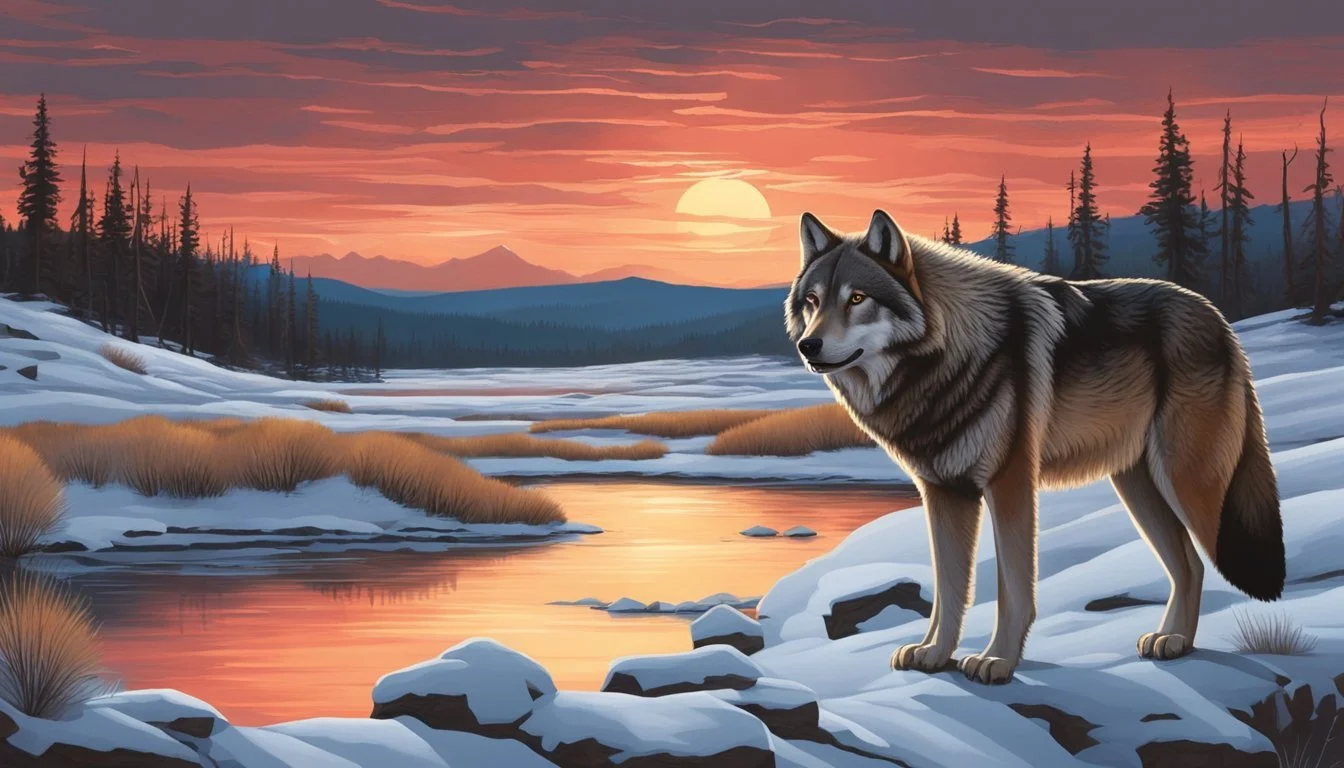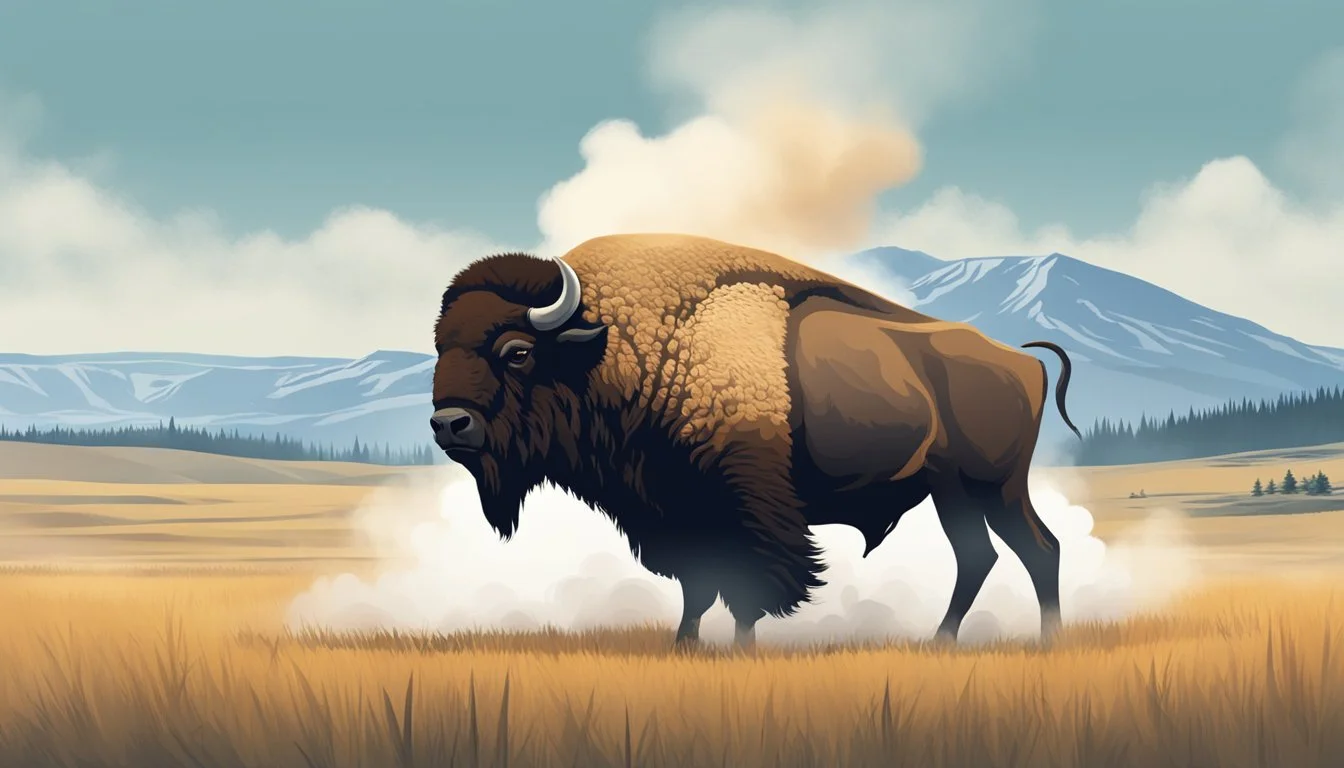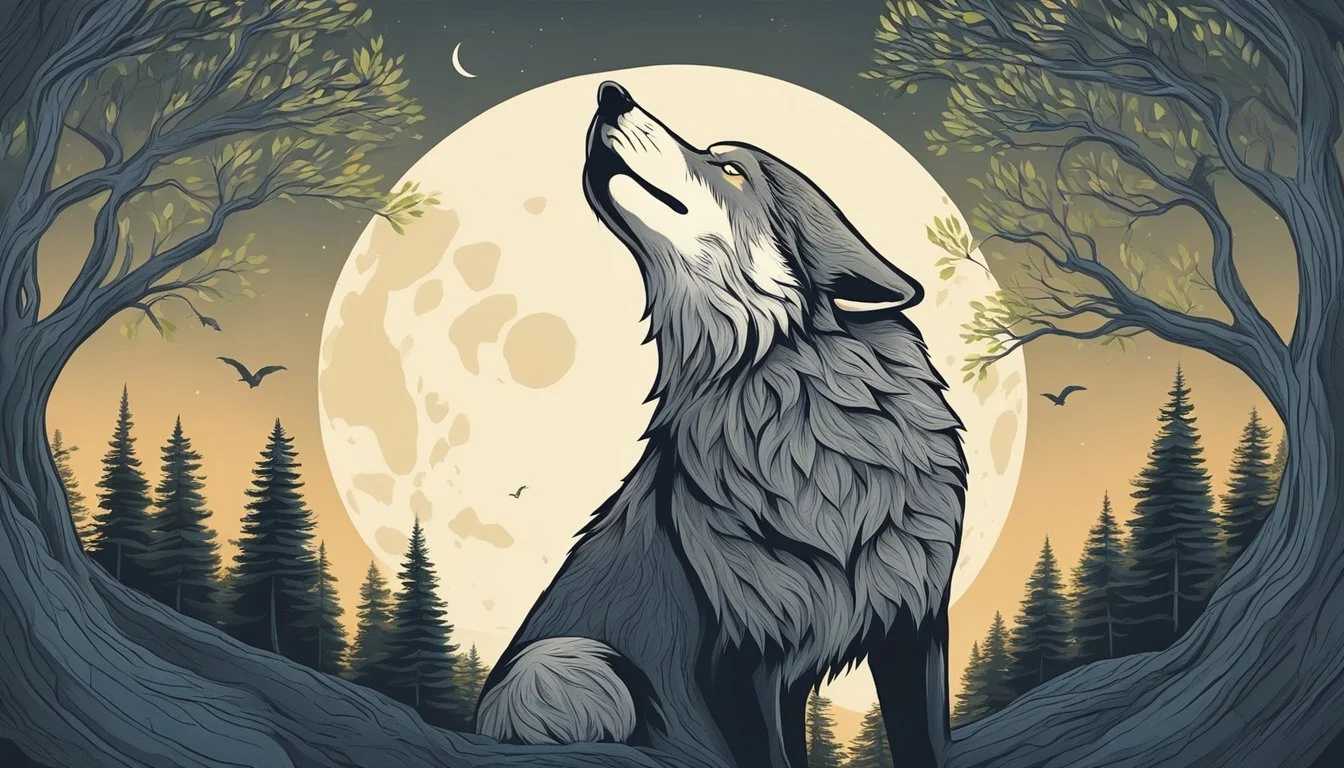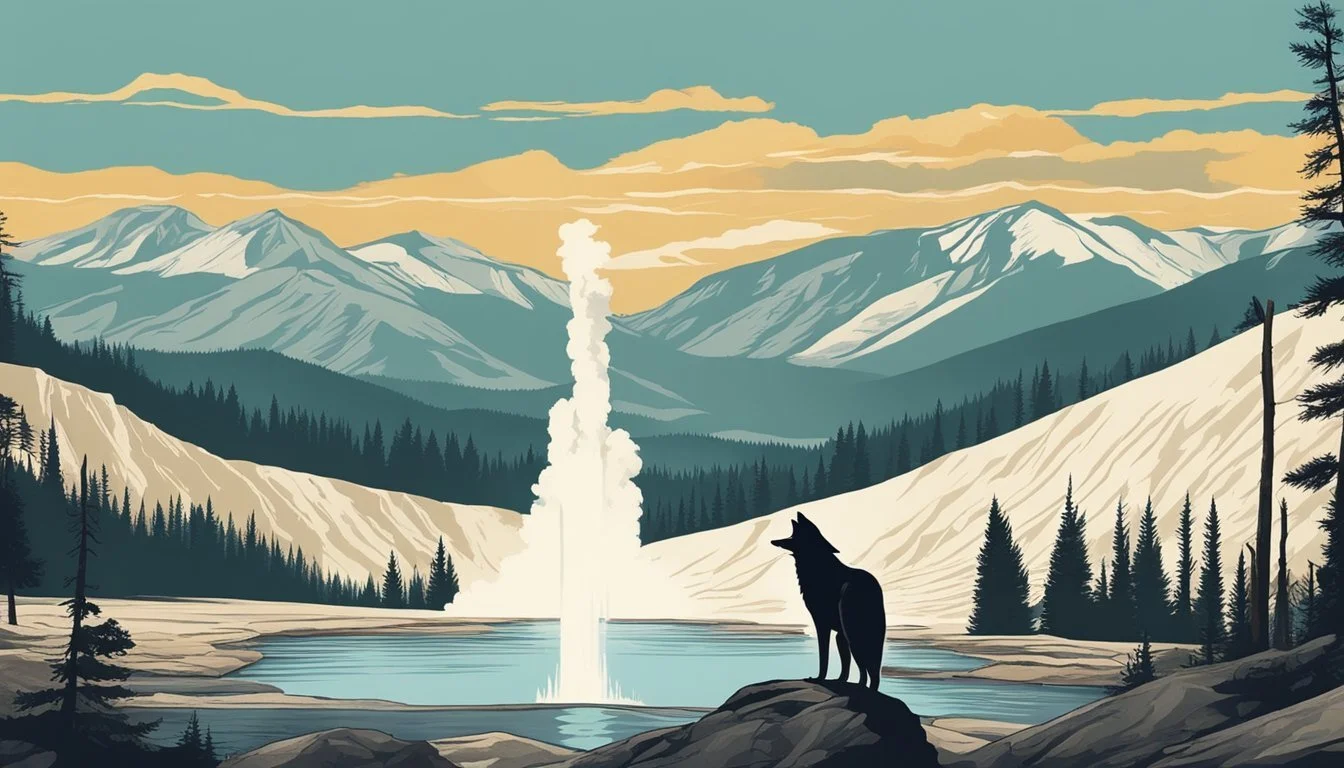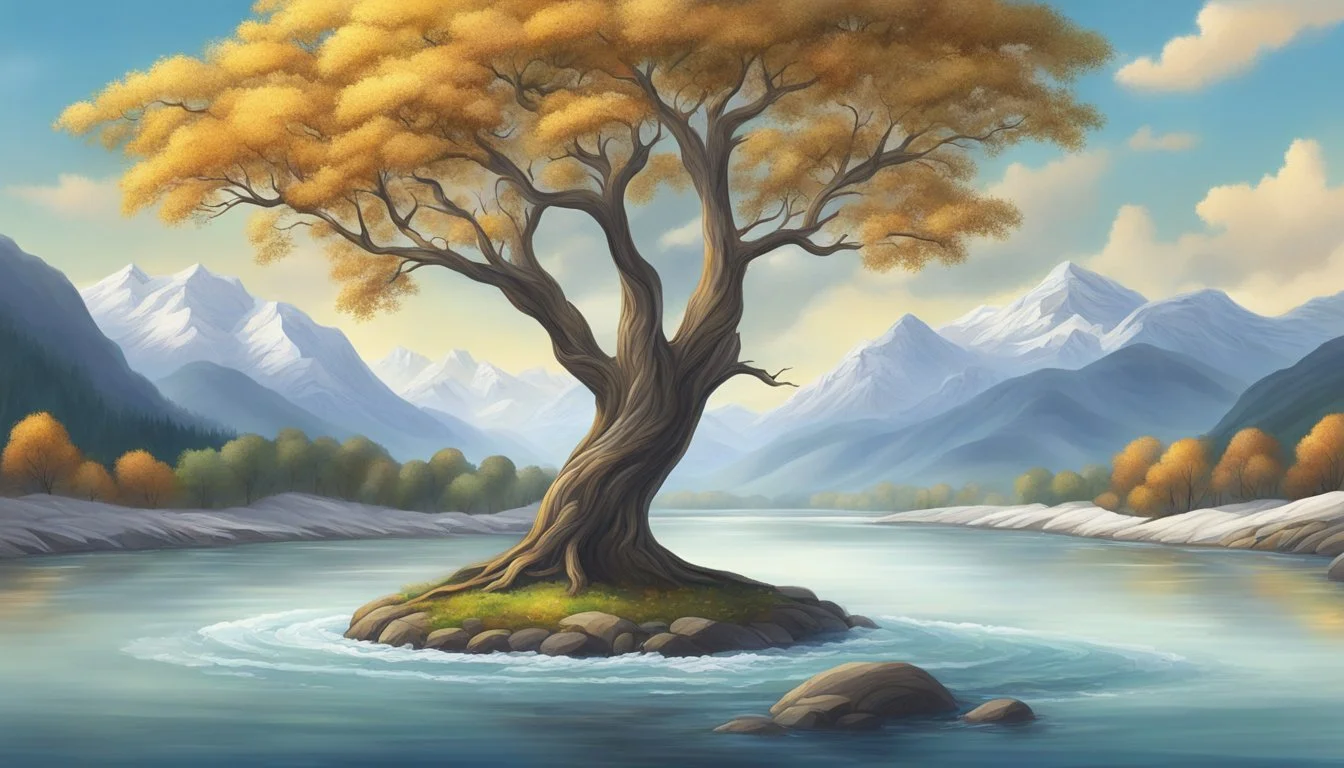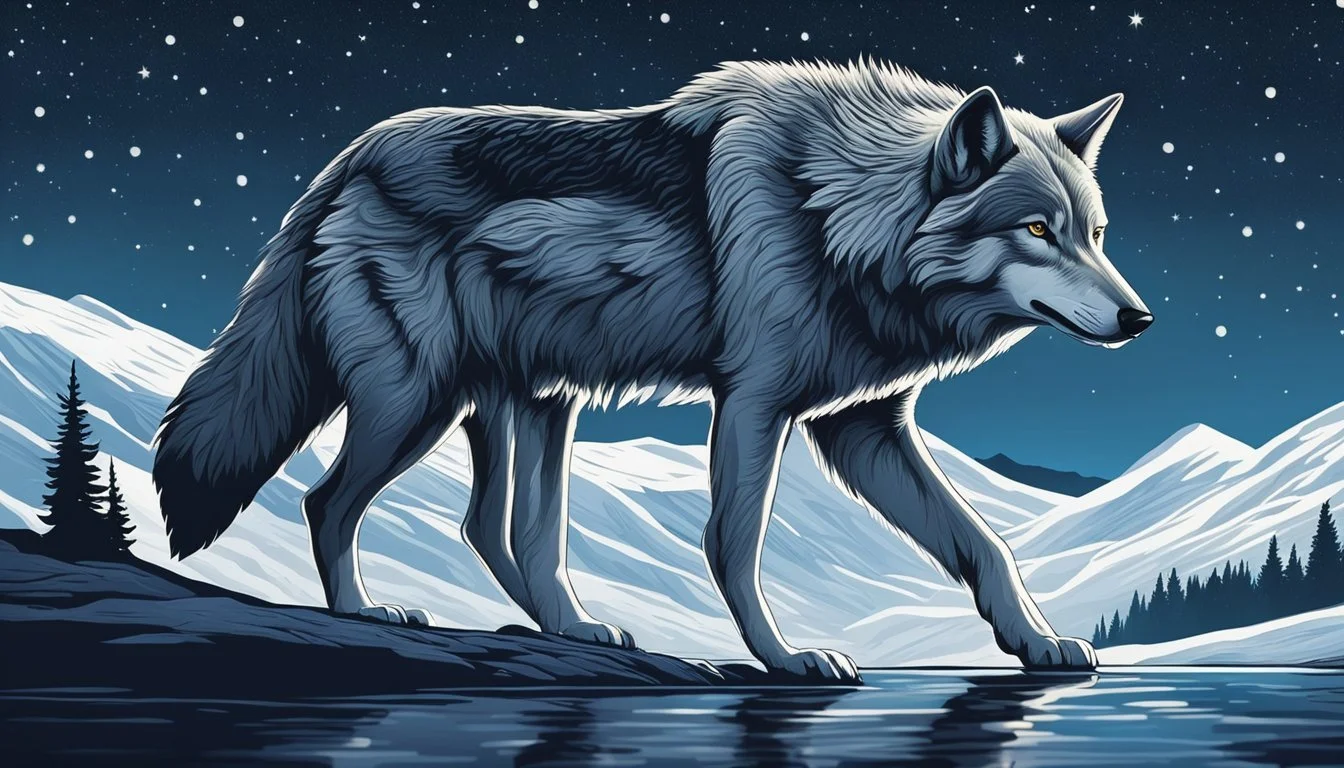Symbolism and Metaphor: Yellowstone's Deeper Meanings
Decoding Nature's Hidden Messages
Yellowstone, the hit TV series created by Taylor Sheridan for Paramount Network, captivates audiences with its gripping storylines and complex characters. Beneath the surface of ranching conflicts and family drama lies a rich tapestry of symbolism and metaphor that adds depth to the show's narrative.
The Dutton family ranch serves as a powerful metaphor for legacy and the American West. John Dutton, portrayed by Kevin Costner, embodies the struggle to preserve a way of life in the face of encroaching modernization and changing values. This central conflict resonates with viewers, contributing to Yellowstone's immense popularity and high viewership ratings.
Wolves feature prominently in the series, representing both the wild nature of the land and the constant threats facing the Duttons. Their presence serves as a visual metaphor for the primal forces at play in the characters' lives, reminding audiences of the untamed spirit that still exists in the modern world. These symbolic elements elevate Yellowstone beyond a typical drama, inviting viewers to explore deeper meanings within its carefully crafted world.
Thematic Foundations of Yellowstone
Yellowstone explores complex themes through its characters and setting. The show weaves together ideas of land, family, and power to create a rich tapestry of modern Western life.
The Significance of Land
The Dutton Ranch serves as more than a backdrop in Yellowstone. It represents legacy, identity, and wealth. John Dutton's fierce protection of his property stems from a deep connection to the land passed down through generations. This attachment mirrors real-world conflicts over land use in the American West.
Montana's breathtaking landscapes play a crucial role, almost becoming a character itself. The vast open spaces symbolize freedom and opportunity, while also highlighting the isolation and harsh realities of ranch life. Yellowstone National Park looms as both a neighbor and a threat, embodying the tension between preservation and development.
Family and Loyalty
The Dutton family dynamics form the heart of Yellowstone. John Dutton, as the patriarch, demands unwavering loyalty from his children. This expectation creates both strength and conflict within the family unit. Each child grapples with their role and the weight of the Dutton legacy.
Succession emerges as a key theme, with John's children vying for position and approval. Their individual struggles reflect broader questions about tradition, change, and the costs of maintaining power. Trust and betrayal intertwine, testing family bonds against external pressures.
Conflict and Power
Yellowstone portrays a world where power is constantly contested. The Dutton Ranch faces threats from developers, rival ranchers, and government entities. These conflicts expose the complex web of relationships and interests shaping modern Montana.
Political maneuvering and violence often go hand-in-hand in the show's depiction of power struggles. Characters must navigate ethical gray areas to protect their interests. This moral ambiguity adds depth to the storylines, especially in later seasons like Yellowstone Season 3 and Yellowstone Season 5.
The show examines how traditional sources of authority clash with changing social and economic realities. It raises questions about the future of ranching, indigenous rights, and the preservation of the American West's cultural heritage.
Symbolism in Character Arcs
Character arcs in Yellowstone are rich with symbolism, reflecting deeper themes of loyalty, identity, and power. The main characters embody complex metaphors that evolve throughout the series.
John Dutton's Role as the Protector
John Dutton symbolizes the old guard of the American West. His character arc revolves around protecting the Yellowstone ranch, representing a dying way of life. The land itself becomes a metaphor for John's values and legacy.
John's cowboy hat and weathered appearance symbolize his connection to tradition. His frequent horseback riding scenes reinforce his role as guardian of the frontier spirit.
In Yellowstone Season 3, Episode 2, John faces threats to his land from developers. This conflict symbolizes the broader struggle between preservation and progress.
Rip Wheeler and the Branding of Loyalty
Rip Wheeler's character arc is deeply intertwined with the concept of loyalty. The ranch's branding ritual serves as a powerful symbol of dedication and belonging.
Rip's branded skin represents his unbreakable bond to the Dutton family. His willingness to inflict this painful mark on others showcases his role as enforcer of the ranch's code.
Violence becomes a metaphor for Rip's devotion. His brutal actions in service of the Duttons symbolize the extreme lengths he'll go to protect what he loves.
Beth Dutton's Ferocity and Vulnerability
Beth Dutton's character arc is symbolized by her sharp business attire and equally cutting words. Her corporate shark persona represents a shield against past traumas.
Beth's smoking and drinking habits serve as metaphors for self-destruction. These behaviors symbolize her internal struggles and the pain she carries.
Her softer moments with Rip reveal Beth's hidden vulnerability. Their relationship becomes a symbol of potential healing and redemption in her turbulent life.
Kayce Dutton: Identity and Dual Heritage
Kayce Dutton's character arc is symbolized by his constant movement between two worlds. His Native American wife and son represent his connection to indigenous culture.
Kayce's military background serves as a metaphor for discipline and duty. This contrasts with the sometimes lawless nature of ranch life, highlighting his internal conflict.
His interactions with both the reservation and the ranch symbolize the broader themes of land ownership and cultural identity in the American West.
Jamie Dutton's Quest for Recognition
Jamie Dutton's character arc is symbolized by his suits and legal documents. These represent his attempts to gain power and recognition through official channels.
His adoption storyline becomes a metaphor for Jamie's sense of alienation within the Dutton family. This revelation drives his actions and choices throughout the series.
Jamie's political ambitions symbolize his desire to create an identity separate from the ranch. His struggles with loyalty and betrayal reflect the complex dynamics of the Dutton family.
Cultural Depictions and Relations
Yellowstone explores complex cultural dynamics in the American West, particularly focusing on Indigenous communities and their interactions with other groups. The show examines themes of progress, tradition, and conflicting worldviews through its diverse cast of characters.
Portrayal of Indigenous Communities
Yellowstone presents Indigenous characters with depth and nuance. Thomas Rainwater, a prominent Broken Rock Reservation leader, embodies the complexities faced by Native Americans in modern society. The show depicts the challenges of preserving cultural heritage while navigating political and economic pressures.
Indigenous traditions and spirituality are woven into the narrative. Sacred sites and rituals play important roles in storylines. The series highlights issues like land rights, resource management, and tribal sovereignty.
Yellowstone doesn't shy away from historical injustices. It addresses the legacy of violence against Native Americans and ongoing struggles for recognition and respect.
Rainwater's Perspective on Progress
Thomas Rainwater represents a modern Indigenous leader grappling with change. He balances tribal interests with personal ambition, often finding himself at odds with other characters.
Rainwater's vision for progress involves reclaiming ancestral lands and building economic power. He sees casino development as a means to secure a future for his people.
His character challenges stereotypes, presenting a sophisticated strategist who can match wits with powerful opponents. Rainwater's actions raise questions about the ethics of progress and the costs of achieving it.
The show explores the tension between Rainwater's methods and traditional values. His pursuit of power sometimes conflicts with spiritual beliefs and community expectations.
Dynamic of Yellowstone's Supporting Characters
Yellowstone's supporting characters provide depth and nuance to the show's narrative. They embody themes of loyalty, survival, and external threats that shape the Dutton family's world.
Ranch Hands: Loyalty and Survival
The ranch hands of Yellowstone form a tight-knit group, fiercely loyal to the Duttons. Colby and Ryan exemplify this devotion, often putting their lives on the line to protect the ranch.
Teeter brings a unique dynamic as a female ranch hand, challenging gender norms in the cowboy world. Her tough exterior and unwavering commitment make her an integral part of the team.
Walker's character adds complexity, straddling the line between loyalty and self-preservation. His reluctance to fully embrace the ranch's ways creates tension among the workers.
Antagonists and External Threats
Wade Morrow stands out as a formidable antagonist, representing the ongoing conflicts over land and power in Montana. His history with John Dutton adds layers to their rivalry.
The presence of wolves serves as both a literal and metaphorical threat. They symbolize the wild, untamed nature that the ranch constantly battles against.
Season 4 introduces new external pressures, including corporate interests and political maneuvering. These forces test the ranch's resilience and the loyalty of its workers.
Ethan, a more recent addition, brings fresh perspectives to the ranch dynamics. His interactions with established characters reveal the ever-changing nature of life at Yellowstone.
Evolution Through Seasons
Yellowstone's symbolism and metaphorical depth have grown alongside its characters and plotlines. The show's progression reveals layers of meaning that reflect the changing dynamics of the Dutton family and their struggles.
From Season 3's Pivotal Moments to Season 4's Climax
Season 3 marked a turning point in Yellowstone's narrative. The episode "Freight Trains and Monsters" (Season 3, Episode 2) introduced new challenges for the Duttons. Beth Dutton, portrayed by Kelly Reilly, faced increasingly complex moral dilemmas. Her character's evolution mirrored the show's deepening exploration of power and family loyalty.
Season 4 built on these themes, culminating in a climax that tested the Duttons' resolve. The family's fight for survival became a metaphor for the preservation of a way of life. John Linson's creative direction ensured that each character's journey reflected broader societal conflicts.
Anticipation in Season 5: The Future of Dutton's Legacy
Yellowstone Season 5 promises to delve further into the symbolism established in earlier seasons. The future of the Dutton legacy hangs in the balance, with each character's actions carrying weight beyond their immediate consequences.
Episode 2 of the new season is expected to set the tone for upcoming conflicts. The ranch itself continues to serve as a powerful symbol of tradition versus progress. Viewers anticipate seeing how the show's metaphorical elements will evolve to represent the changing landscape of the modern American West.
Visual and Musical Storytelling
"Yellowstone" captivates audiences through its masterful use of visuals and music. These elements work in tandem to create a rich, immersive experience that brings Montana's rugged beauty to life.
Cinematography: Capturing the Beauty of Montana
The show's cinematography serves as a visual love letter to Montana's landscapes. Sweeping shots of vast prairies and majestic mountains establish the setting's grandeur. Close-ups of weathered faces and calloused hands tell silent stories of hard work and perseverance.
Natural lighting plays a crucial role, with golden hour scenes bathing characters in warm hues. This technique evokes a sense of nostalgia and timelessness. The Yellowstone Dutton Ranch, central to the series, is often framed as both haven and battleground.
Clever use of symbolism appears in visual motifs. The repeated image of a lone tree standing against harsh elements mirrors the Dutton family's resilience. Smoke rising from distant fires hints at lurking dangers and conflicts.
Score and Soundtrack: Enhancing the Atmosphere
Music in "Yellowstone" is more than background noise - it's a character in its own right. The score, featuring haunting strings and sparse piano, underscores the isolation and beauty of Montana's wilderness.
Original compositions blend seamlessly with carefully selected songs. Country and Americana tracks dominate, reinforcing the show's Western identity. Artists like Whiskey Myers and Blackberry Smoke contribute to the authentic feel.
Key scenes often rely on music to amplify emotional impact. A mournful violin might accompany a character's internal struggle, while a driving guitar riff signals impending conflict. This musical storytelling adds depth to character arcs and plot developments.
The soundtrack's nostalgic quality taps into themes of tradition and heritage, central to the Dutton family's story. It serves as an auditory bridge between Montana's past and present, much like the ranch itself.
Reception and Impact
Yellowstone has emerged as a cultural phenomenon, captivating audiences across the United States. The TV series has achieved remarkable viewership numbers, consistently growing its audience with each season.
The premiere of Yellowstone's fifth season broke records for the Paramount Network, solidifying its status as a television powerhouse. This success has positioned the show as one of the most-watched cable series in recent years.
Critics and viewers alike have praised Yellowstone for its acting performances, writing, and technical achievements. The show's portrayal of the modern American West has struck a chord with diverse audiences, resonating particularly strongly in rural and suburban areas.
Yellowstone's impact extends beyond entertainment, sparking conversations about land use, family dynamics, and the changing face of the American frontier. Its popularity has also influenced the television landscape, inspiring a wave of Western-themed dramas.
The series has garnered a dedicated fan base, with viewers tuning in not only for the plot but also for the stunning visuals of Montana's landscapes. This engagement has led to increased tourism in areas where the show is filmed.
Yellowstone's success on the Paramount Network has spawned several spin-off series, expanding its narrative universe and further cementing its place in contemporary television culture.

